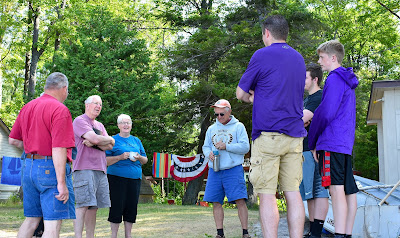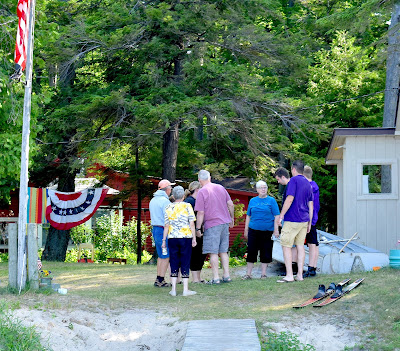 |
| Family Conversations and Stories Help Readers |
Children who are successful readers have many stories read and told to them. They have family conversations about a wide variety of subjects including their culture and ancestors. Young children may not understand every nuance of the stories now, but they will later.
Family gatherings provide perfect opportunities to tell about parents and grandparents growing up. Storytelling is the first exposure to history and the stories of people they love. Most important, if family stories are passed on, they are not lost.
One generation passes on the family’s values, morals, and religion through stories. They are family lessons of kindness, sharing, perseverance, courage, and triumph over difficulty. Some are just funny.
Grandpa and Lombardi
Grandparents can help pass on little tips that make growing up a bit easier. One Grandpa grew up in Green Bay and took his bike to watch Vince Lombardi and the Packers practice. He watched the great team up close, but he was always careful not to use the same words Coach used or he would have his mouth washed out with soap. Lesson: Be your own person and be smart about what you say.
 |
| Telling Stories Takes Practice |
Telling stories takes a little practice. You can start with a story you know well. Perhaps your grandparents told you some stories. Think back to an encounter with an animal, an experience you remember vividly, something funny, a lesson you learned, or a slightly scary story that turns out well. Use lots of description, sounds, moving around, and exaggeration.
There might be a favorite book, Aesop’s fable, legend, or Bible story that teaches a lesson you want children to remember. Another way to recall stories is to take out old family pictures and tell a story about the people. These stories are great for car trips, long winter nights, family holidays, campfires, or times when children need to settle down.
Recording
 |
| Recording Stories Keeps Family Histories |
Families can use smart phones to interview grandparents so stories and voices can live on. You can have the questions written in advance and practice with the technology. Grandparents can receive questions in advance to think about their answers. Enlist young children to press the buttons and help ask some questions. You can start with the basics. What is your name and do you know why you have it? When were you born? What did the family do for fun? What family chores did you do? How has technology changed? What were your favorite foods? What is your favorite funny family story? What were your special holiday traditions? Were there any fads while growing up? Were there any special home remedies when the family got sick? The interviews can be saved on cheap jump drives and given to family members. See grandparentsteachtoo.blogspot.com and wnmufm.org/Learning Through the Seasons.
Photos: Fran Darling, fdarling fotos -- in Memory of Jim McCoy, The Storyteller


